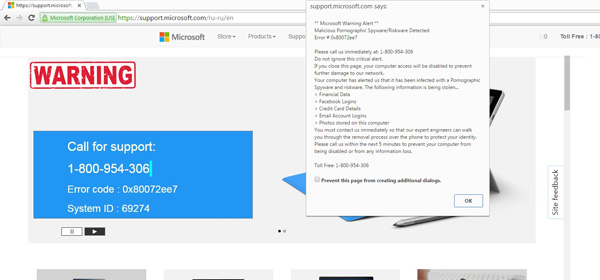Australians aged 45 and over are falling victim to a pop-up internet ad scam that allows scammers to steal their personal data, according to the Australian Competition and Consumer Commission (ACCC).
The dodgy pop-up windows appear on computers claiming the device is infected with viruses or other malicious software and providing an official-looking phone number (usually a 1800 number) to rectify the problem.
ACCC Deputy Chair Delia Rickard explained in a statement that if you call the number, the scammer will then ask for remote access to your computer.
“Once a scammer has remote access to your computer they can install malicious software, steal your personal data, con you into paying for a ‘service’ of your PC, or sell you unnecessary software to fix a problem that doesn’t exist,” Ms Rickard said.
“These scammers are very convincing and sound like they’re the real deal when talking about tech issues. The pop-ups they create to lure people in look legitimate and are often made to imitate trusted websites for brands like Microsoft and Apple.”
Perhaps most alarmingly, these pop-ups often freeze the computer or stop the close button on your browser from being activated, making it appear as though the threat of harm being done to your computer is real.
“Your first and best line of defence against this scam is to not call that number and close the pop-up if possible,” Ms Rickard said.
Affected users can close the pop up manually through Windows Task Manager (for PC users) or by using the Activity Monitor (for Mac users). If this fails to work, they can also shut down and restart their computer.
“If you do call the number never give a stranger – no matter how legitimate they sound – remote access to your computer,” Ms Rickard said.
“If you think you’ve been caught by this scam, call your bank immediately and let them know what happened to protect your personal bank and/or credit card details. If your credit card was charged for sham software or servicing, you can try to get your money back.”
Scamwatch has already received an average of 300 reports a month about this scam in 2017, with more than $41,000 lost in total. Australians aged 45 and over are most likely to encounter and lose money to this scam, according to the ACCC.
The ACCC’s Little Black Book of Scams is a good way to spot and avoid scams and has been updated to include these latest remote-access tricks.
Related articles:
Scam puts smartphone users at risk
Scam phone calls
New scam aimed at pensioners

